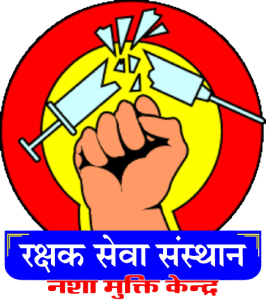What is Heroin Addiction?
Heroin addiction is a type of opioid addiction, characterized by the compulsive use of the drug despite negative consequences. It can cause a chronic disease that alters the brain’s structure and function, leading to physical dependence and intense cravings. Heroin abuse can cause severe health issues, including respiratory failure, infections, and overdose. Individuals who are addicted to heroin may experience withdrawal symptoms if they stop using the drug, such as nausea, muscle aches, and anxiety. These symptoms can be intense and can make it difficult for people to quit using heroin on their own. Long-term heroin use can also lead to serious health problems, including liver and kidney disease, lung infections, and heart infections.
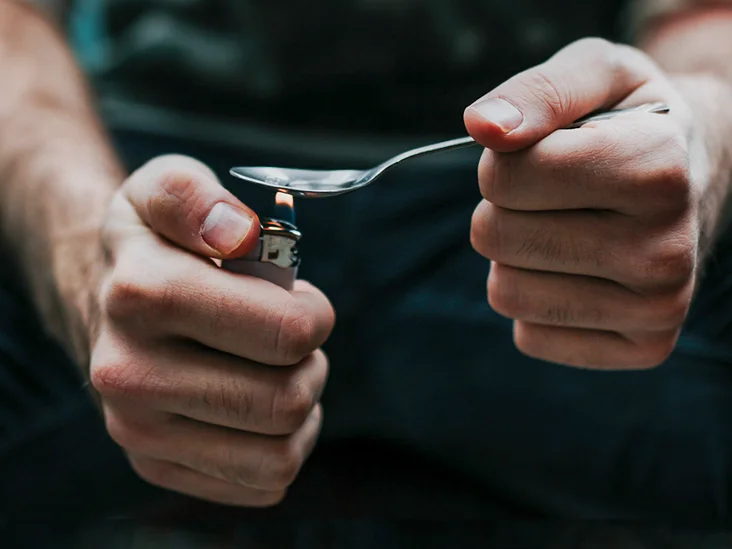
Why Choose

DAILY ASSISTANCE
Recovery Monitoring, assistance in daily activities, and regular updates to family relatives about the progress.

BEST LIVING CONDITIONS
Feels like a home for patients, we provide homely conditions which makes stay more comfortable and helps in fast recovery.

24/7 PROFESSIONAL CARE
Doctors, nurses, attendants are available 24/7 so that each patient gets 360 degree of attention and the necessary treatment.

SOCIAL ACTIVITIES
Extra activities play a vital role. We have daily yoga, meditation sessions, Dramas, Plays, Dance, Music, and Other entertainment programs to help people in speedy recovery.
How to Identify that you are addicted to heroin?
Identifying heroin addiction in yourself or a loved one can be difficult, as the signs and symptoms may not always be obvious. However, some common signs and symptoms that may indicate a heroin addiction include:
- Using heroin regularly, despite negative consequences
- Developing a tolerance to the drug, requiring more of it to achieve the same effects.
- Using heroin to cope with stress or negative emotions.
- Experiencing withdrawal symptoms when attempting to stop or reduce use.
- Neglecting responsibilities at work, school, or home.
- Losing interest in hobbies and activities that were once enjoyed.
- Displaying symptoms of depression, anxiety, or other mental health conditions.
- Neglecting personal hygiene and grooming.
- Financial problems or stealing money to support their habit.
- Losing consciousness or nodding off while using.
- Constricted pupils, drowsiness and slurred speech.
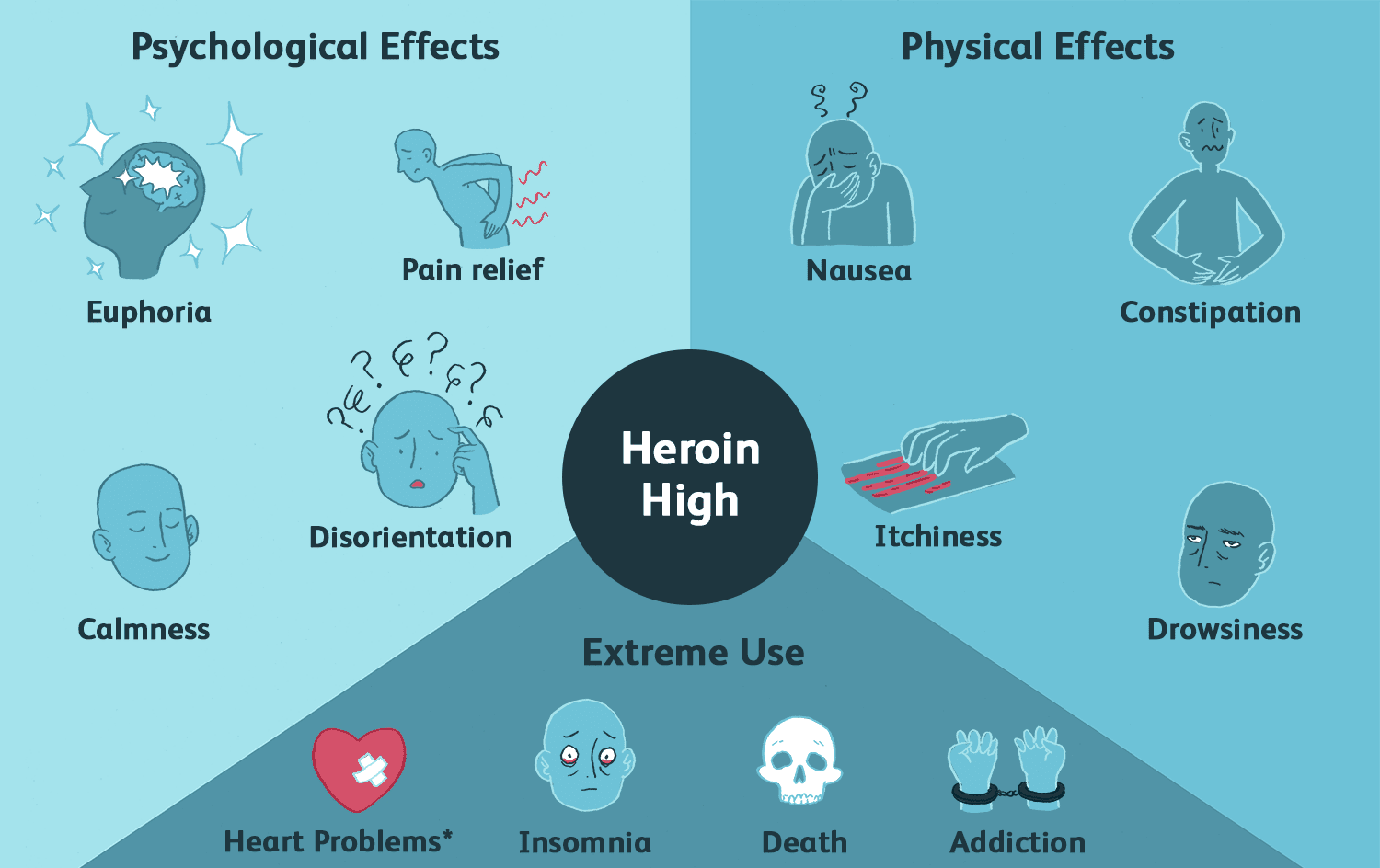
Causes of Heroin Addiction
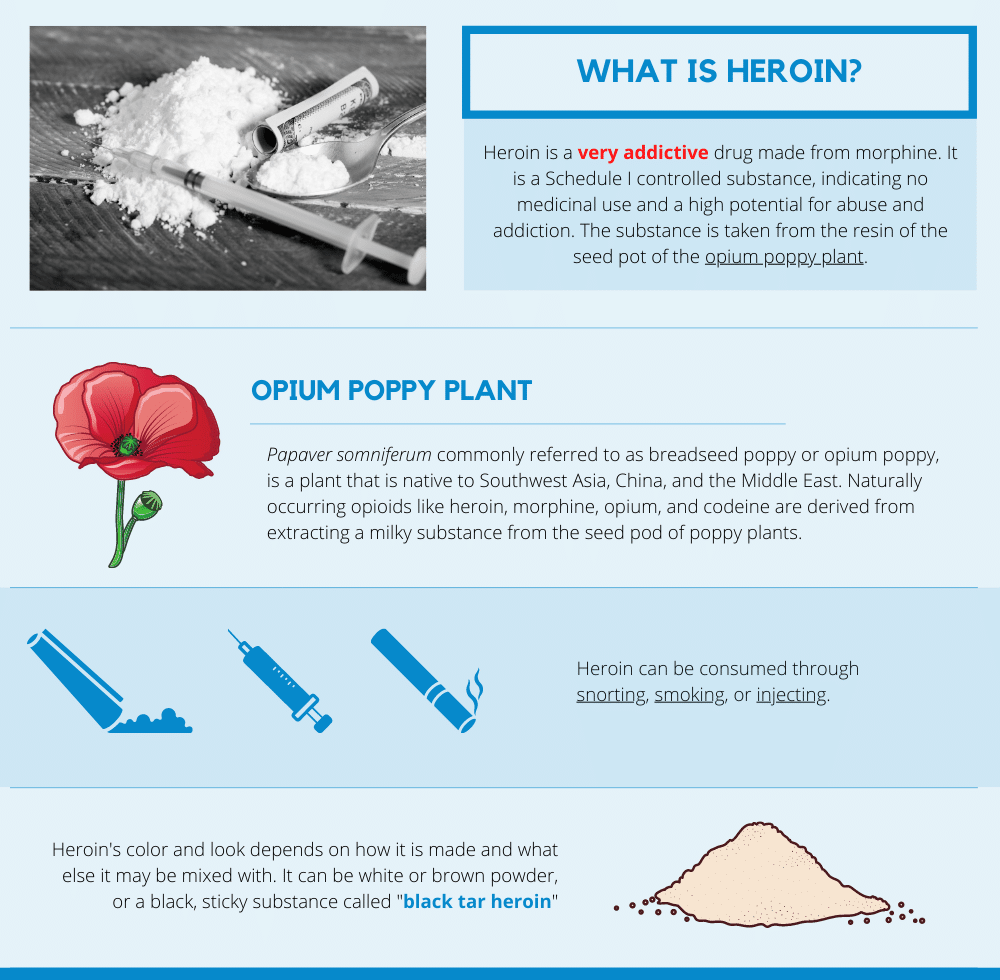
The causes of heroin addiction are complex and can vary from individual. Some potential factors that may contribute to the development of a heroin addiction include:
- Genetics: Research suggests that certain genetic variations may make some individuals more vulnerable to addiction.
- Environmental factors: Exposure to traumatic experiences, poverty, and a lack of social support can increase the risk of addiction.
- Mental health: People with certain mental health conditions such as depression, anxiety, and post-traumatic stress disorder may be more likely to develop an addiction.
Initiation: Regular use of heroin can rapidly lead to physical and psychological dependence, tolerance and addiction.
Effects of Heroin Addiction
Heroin addiction can have a wide range of negative effects on an individual’s physical, psychological, and social well-being. Some of the most significant effects include:
- Physical Effects of heroin addiction: Long-term heroin use can damage the heart, lungs, liver, and kidneys. It can also lead to weakened immune systems, increased risk of infections and chronic diseases.
- Psychological Effects: Heroin addiction can cause changes in brain chemistry that can lead to mood swings, depression, and anxiety. It can also cause memory problems and an inability to think clearly.
- Social Effects: Heroin addiction can strain relationships and can lead to job loss and financial troubles. It can also increase the risk of legal problems and homelessness.
- Increased risk of overdose: Regular use of heroin can lead to tolerance, which means that an individual needs to use more of the drug to achieve the same effects. This can increase the risk of overdose, which can be fatal.
- Withdrawal effects: when people dependent on heroin try to stop or reduce their use, they may experience withdrawal symptoms, including strong cravings, muscle and bone pain, insomnia, diarrhea, vomiting, cold flashes with goosebumps and involuntary leg movements.
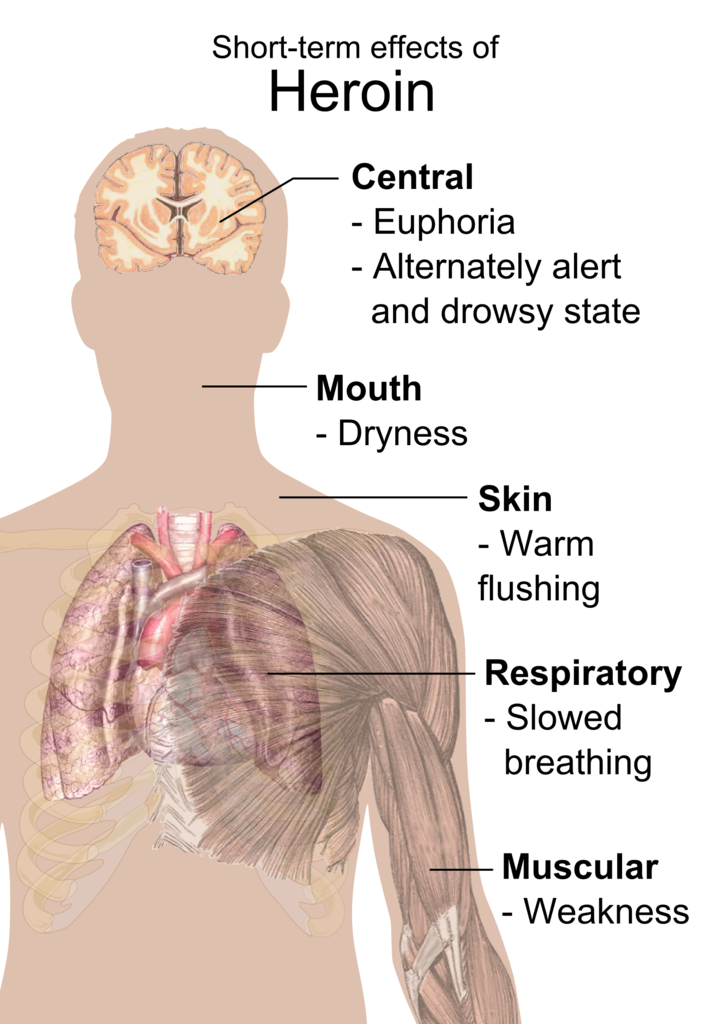
Heroin Withdrawal Symptoms
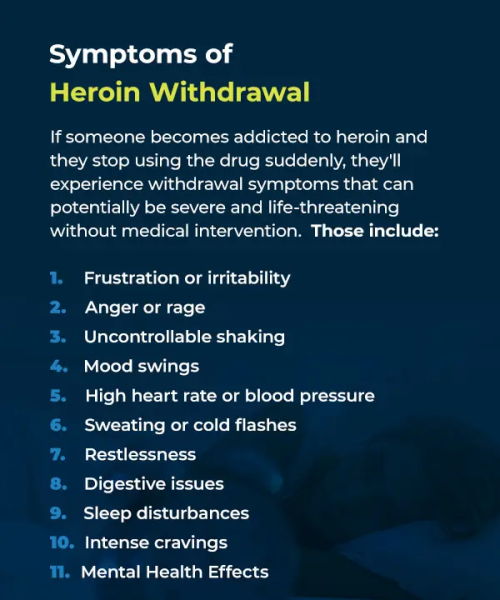
When an individual who is dependent on heroin stops or reduces their use, they may experience withdrawal symptoms as the body adjusts to the absence of the drug. The severity and duration of withdrawal symptoms can vary depending on the individual, but some common symptoms include:Strong cravings for the drug,Anxiety, agitation, and restlessness,Muscle and bone pain,Insomnia and other sleep disturbances,Nausea,vomiting, and diarrhea,Cold flashes with goosebumps,Abdominal cramps,Increased tear production, Runny Nose, Sweating, Shivering, goosebumps,Yawning and Fatigue.
It’s worth noting that withdrawal symptoms can be severe and uncomfortable, and in some cases, they can be dangerous. For this reason, detoxing from heroin should be done under medical supervision, with medications used as needed to alleviate symptoms and keep the individual as comfortable as possible.
How to treat heroin addiction?
In the above article, the information provided can help a person to know about heroin addiction and its causes, effects, and withdrawal symptoms and also provides a guide
for an individual to identify if he is suffering can get Heroin Addiction Treatment in Jodhpur.
RAKSHAK Nasha Mukti Kendra In Jodhpur facilitates treatment for individuals struggling with drug addiction, including heroin addiction. Treatment at Rakshak Nasha Mukti Kendra typically follows a multi-disciplinary approach like Detox, Behavioural Therapy, Medication Assisted Treatment (MAT), Rehabilitation, Support and much more.
We provide the best in class heroin addiction treatment which is customized around
the patient and his symptoms. We help our patients by helping them abstain from
Heroin and also help them in managing the withdrawal symptoms which arise as a
result of withdrawing from heroin. Our highly level facilities and trained staff are
available 24*7.
People who want to take the first step towards improving their lives can come to our Heroin rehabilitation center as it’s sure to help them give up their heroin addiction.
Frequently Asked Questions
Contact Us

Call Us
8854892934,7297879351 , 9571102993

Mail Us
Rakshaknashamuktphalodi@gmail.com

Reach Us
plot no. 25, near telephone exchange, Bapu Nagar, housing board, phalodi
